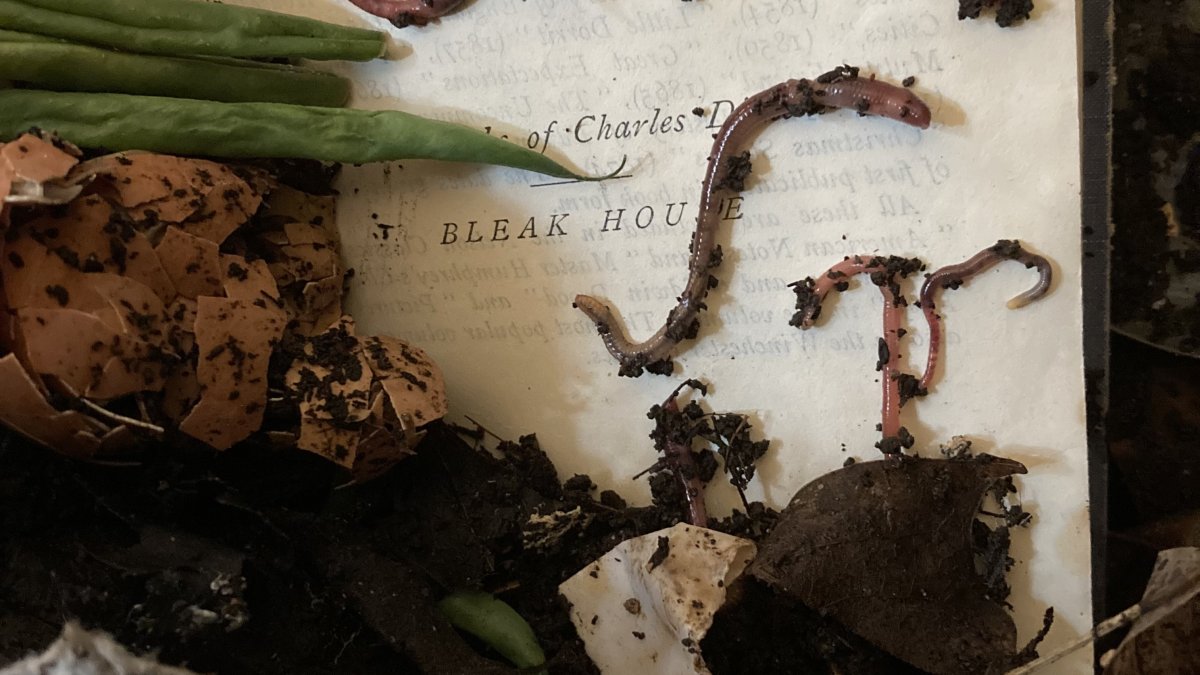A business in Guelph is letting patrons turn their used books into compost.

The Bookworm Project is the brainchild of Karen Houle, a former University of Guelph professor.
Houle first came up with the idea of turning books into compost in 2022 while in Philadelphia. She brought the idea home and set up a box at Kim’s Cafe in January.
Houle said she takes one donated book each month to be composted. It is put inside the box where the worms do the rest.
“It is a perfect item to feeds to the worm because every book used to be a tree so they can all be composted,” said Houle. “It was about making a gesture of having too much stuff. I think, collectively, we can start to think in interesting ways about whether we can direct some of the things we own as possessions towards becoming ecologically-sound objects.”
Houle’s project has since been at the Double Rainbow Cafe on Ontario Street in the Ward district. She often checks on where the books are in the state of decomposition. Houle said she gets a variety of reactions from people in seeing the worms devour the books.
“Most people are like ‘it’s kind of funny’ so there’s lots of giggles,” Houle said. “Other people are geeked out by the worms. Then other people just realize that it is kind of a brilliant idea to put something like a cultural object like a book and treat it like a precious item and see that if we have no use for it, then it can become something very, very good for the earth.”
Houle said there have been a few negative reactions as some people view the project as a form of maltreatment of books. She said this is not a form of censorship or book burning but it is interesting to hear that reaction.
Inside the front cover of the book that is being donated to the project, each person writes down why they are parting ways with the book.
“It could be because you have a particular conflict with it or there’s a conflict around it,” said Houle. “Somebody asked me if she can get rid of a book that she thinks is valuable and us trying to sell but can’t sell. So the conflict is she doesn’t want to own it but nobody wants to buy it.”




Comments